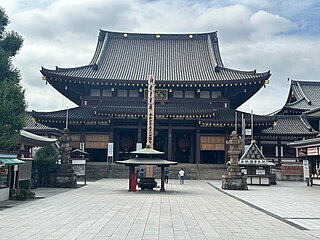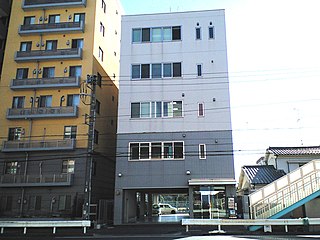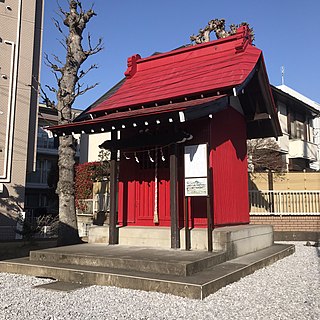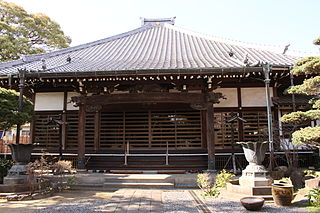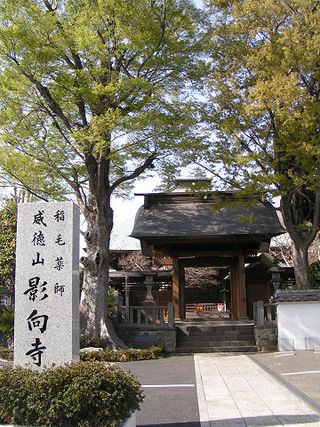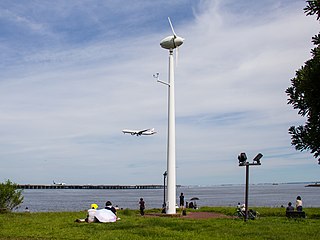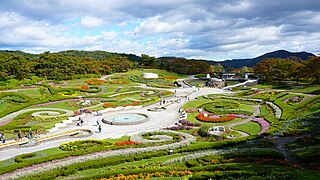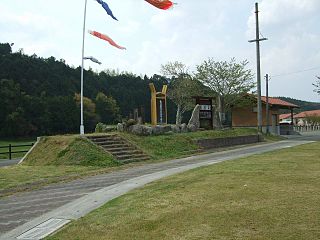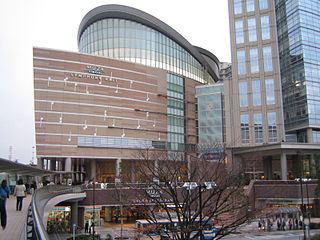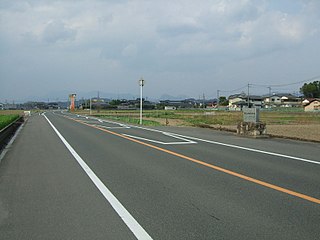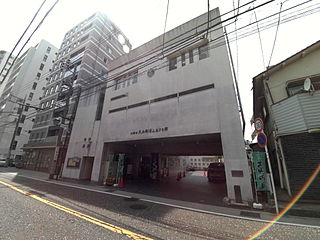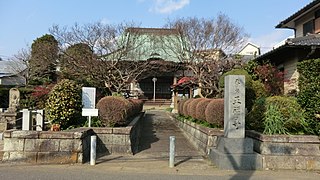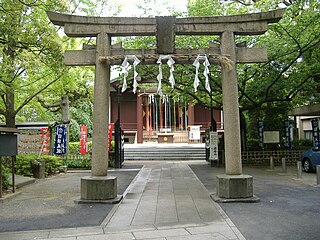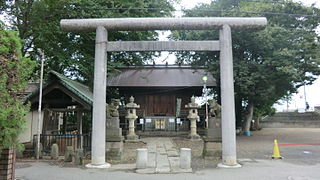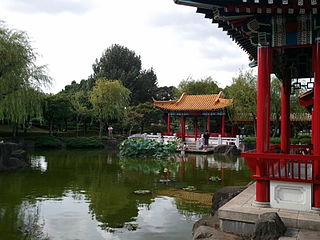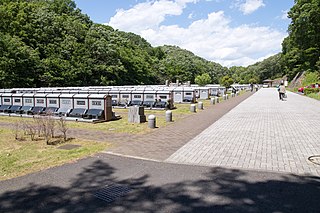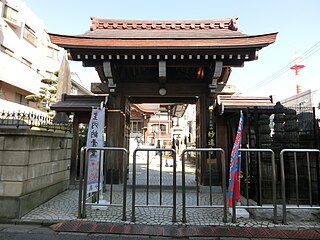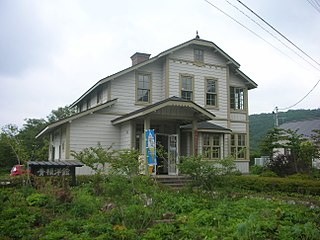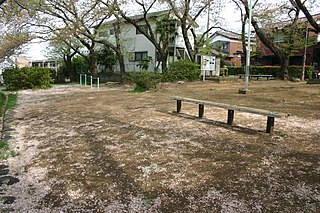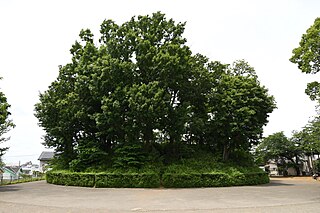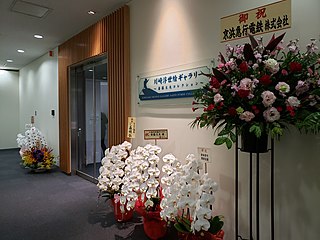27 Sights in Kawasaki, Japan (with Map and Images)
Legend
Welcome to your journey through the most beautiful sights in Kawasaki, Japan! Whether you want to discover the city's historical treasures or experience its modern highlights, you'll find everything your heart desires here. Be inspired by our selection and plan your unforgettable adventure in Kawasaki. Dive into the diversity of this fascinating city and discover everything it has to offer.
Sightseeing Tours in KawasakiActivities in KawasakiKawasaki Daishi (川崎大師) is the popular name of Heiken-ji , a Buddhist temple in Kawasaki, Japan. Founded in 1128, it is the headquarters of the Chizan sect of Shingon Buddhism. Kawasaki Daishi is a popular temple for hatsumōde. In 2006, 2.72 million people engaged in hatsumōde here, the third largest figure in Japan and the largest in Kanagawa Prefecture. In 2016, the temple made preparations to receive 3 million visitors over the same period. Keihin Electric Express Railway, the oldest railroad company in the Kantō region of Japan, commenced service in January 1899 to carry passengers to Kawasaki Daishi from Tokyo.
2. 川崎鶴見臨港バス大師定期券発売所
Kawasaki Tsurumi Rinko Bus Co., Ltd. is a bus operator headquartered in Kawasaki Ward, Kawasaki City, Kanagawa Prefecture. The abbreviation is Rinko Bus, which is an abbreviation that has been officially used since the company was founded.
3. Tokyu Train and Bus Museum
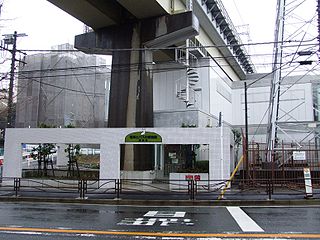
The Train and Bus Museum is a railway preservation exhibition facility operated by Tokyu Corporation, located in Miyamae Ward, Kawasaki City, Kanagawa Prefecture. The nearest station is Miyazakidai Station on the Tokyu Den-en-toshi Line, and the building is situated under the elevated tracks of the Den-en-toshi Line, with one of the entrances located in front of the ticket gate.
4. ローム斜面崩壊実験事故慰霊碑
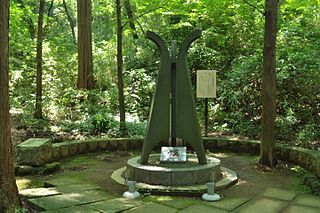
The Kawasaki Loam Slope Collapse Experiment Accident (Kawasaki Loam Shamenhokai Jikenjiko) was an accident that occurred on November 11, 1971 (Showa 46) during a slope collapse experiment conducted in Ikuta Ryokuchi Park, Kawasaki City.
5. Nagamori Inari Shrine
Nagamori Inari Shrine is a Hōken Shintō shrine located in Tama Ward, Kawasaki City, Kanagawa Prefecture. Even after the separation of Shinto and Buddhism, rituals have continued to be conducted by the Nichiren sect's Hōgenzan Anrakuji, and therefore it is not affiliated with the Association of Shinto Shrines. The shrine grounds are part of the property of the founding family of Anrakuji, the Saeki family, and the shrine buildings are maintained by the Nagamori Inari Association, which consists of local worshippers. Additionally, prayers and red seals can be received at Anrakuji.
6. Ōzenji Temple
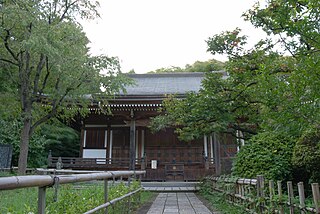
Ōzenji Temple is a temple of the Shingon sect of the Toyoyama sect located at 940 Ozenji, Aso-ku, Kawasaki City. The official name is Hoshijuku Mountain Lotus Zoin Wangzen Temple. "Ozenji" is also the name of a place in the surrounding area. It was also called "Koyasan of the East". The temple crest is a three-leaf aoi. It is known as the temple where Zenji Maru, which is said to be the oldest variety of sweet persimmon in Japan, was discovered, and there are still logs registered as national registered monuments in the precincts.
7. 大悲山光明寺
Komyoji Temple is a temple of the Shin Buddhist Otani sect located in Futako 1-chome, Takatsu-ku, Kawasaki City. The name of the mountain is Daihi-san. It used to be located in Futako Village, but in 1669 (Kanbun 9) in the early Edo period, it was moved to its current location facing the Oyama Highway (Yagurasawa Return).
8. 影向寺
Kagekoji Temple is a temple of the Tendai sect located in Nogawa Honmachi 3-chome, Miyamae-ku, Kawasaki City. The honzon is Yakushi Nyorai. He is also known as the "Inage Yakushi". Shadowing means that the gods and Buddha appear.
9. Wakamiya Hachiman-gū
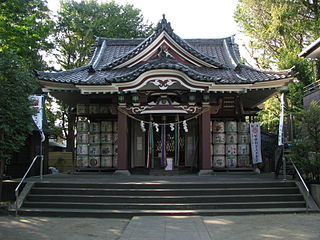
Wakamiya Hachimangu is a shrine located in front of Daishi Station, Kawasaki Ward, Kawasaki City, Kanagawa Prefecture, Japan. Former Daishi Kawara General Guard. There is a Kanayama Shrine in the precincts of the shrine, which is known for its "Kanamara Festival".
10. Ukishimacho Park
Ukishimacho Park is a city park (neighborhood park) located in Ukishima-cho, Kawasaki-ku, Kawasaki City, Kanagawa Prefecture. It is sometimes referred to as the Sea Breeze Forest or the Kawasaki Ward Citizen's Health Forest.
11. Michinoku Lakewood National Government Park
The state-run Michinoku Forest Lakeside Park is the only national park in the Tohoku region, located on the shores of Lake Kamafo Dam in Kawasaki Town, Shibata District, Miyagi Prefecture. The official abbreviation is "Michinoku Park", but it is sometimes abbreviated as "Lakeside Park" locally.
12. 真崎駅跡
Masaki Station (Masaki Station) is a station on the Kamiyamada Line of the Kyushu Railway Company (JR Kyushu), which was once located in Masaki, Kawasaki Town, Tagawa District, Fukuoka Prefecture. With the abolition of the Kamiyamada Line, it was abandoned on September 1, 1988 (Showa 63).
13. Muza Kawasaki Symphony Hall
Muza Kawasaki Symphony Hall is a concert hall in Saiwai-ku, Kawasaki, Kanagawa, Japan. The name is coined from music and za (座) lit. 'seat'. The vineyard-style concert hall, with a capacity of 1,997, was built for the eightieth anniversary of the foundation of the city.
14. Higashi-Kawasaki Station Ruin
Higashi-Kawasaki Station (Higashi-Kawasaki Station) is a station on the Kamiyamada Line of the Kyushu Railway Company (JR Kyushu), formerly located at 2679 Higashi-Kawasaki, Kawasaki-cho, Tagawa-gun, Fukuoka Prefecture, Japan. With the abolition of the Kamiyamada Line, it was abandoned on September 1, 1988 (Showa 63).
15. 大山街道ふるさと館
The Oyama Kaido Furusato Museum is a museum located in Takatsu Ward, Kawasaki City, Kanagawa Prefecture. It exhibits materials related to the history and folklore of the Oyama Kaido (Oyama Road), one of the side roads in Kawasaki City, as well as works of art and literature by people connected to the local area. The museum aims to provide a place for citizens to learn and contribute to the cultural development of the community, and it is maintained by the city of Kawasaki. It opened in August 1992 and was built on the site of the former Takatsu Town Hall.
16. 正福寺
Shofukuji Temple is a temple of the Tendai sect located in Kawasaki City, Kanagawa Prefecture. The detailed name is Iōzan Hotokuin Shofukuji Temple (医王山正福寺法徳院). He is one of the Tama Seven Yakushi
17. 稲毛神社
Inage Shrine is a shrine located in Kawasaki Ward, Kawasaki City, Kanagawa Prefecture. Its former designation was a local shrine, and it is currently a branch shrine of the Association of Shinto Shrines. Its former names were Sanno Gongen and Takemikazuchi Shrine, and it is still commonly referred to as Sanno-sama.
18. 二子神社
Futako shrine , located in Takatsu-ku, Kawasaki, is a Shinto shrine in Kanagawa prefecture, Japan. It was established in 1641 and was called "Shinmeisha". It was renamed "Futako Shrine" in the Meiji Era, after the area in which it is located.
19. Daishi park
Daishi Park is a city park (district park) located in Kawasaki Ward, Kawasaki City, Kanagawa Prefecture, Japan. It is adjacent to Heima-ji Temple (Kawasaki Daishi). There is a Chinese garden "Shenxiuyuan" in the park, which is also famous for cherry blossoms. As a town name, on July 1, 1965 (Showa 40), it became an independent town name from Daishi Town, and residence display was implemented.
20. 川崎市岡本太郎美術館
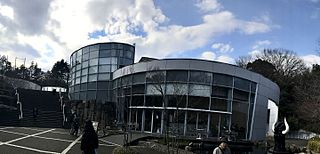
Taro Okamoto Museum of Art is an art museum located in Tama-ku, Kawasaki, Kanagawa, Japan. The Taro Okamoto Museum of Art mainly collects and preserves the works of Taro Okamoto and his parents, Kanoko and Ippei.
21. 早野聖地公園
Hayano Sacred Land Park is an urban planning cemetery located in Hayano, Aso-ku, Kawasaki City, Kanagawa Prefecture, Japan. With an area of 208,337 m2, it is the second largest cemetery park in Kawasaki City after Midorigaoka Cemetery.
22. 円福寺
Enpukuji is a Buddhist temple of the Chizan sect of Shingon Buddhism located in Kawasaki Town, Shibata District, Miyagi Prefecture, Japan. The main Buddha enshrines the Bodhisattva of Enmei Jizo and the Maria Kannon as a side wait. Shibata Thirty-Three Kannon Shrine No. 27 Shrine (Sapporo Honzon 11 Faces Kannon Bodhisattva)
23. 妙遠寺
Myōonji is a Nichiren sect temple located in Miyamae-cho, Kawasaki-ku, Kawasaki City, Kanagawa Prefecture. It has the "Izumida Nikun Kōtokuhai" which honors the great flood control experts Koizumi Jidaifuyoshi and Tanaka Kyūgu. The mountain name is Chōkeizan. The former head temple is Hōda Myōhonji. The temple's legal connection is with Kōtōhōen, and the priest's legal connection is with Tsūshi Zōshigaya Hōen.
24. Aone Yōkan
Aone Western-style building is a wooden Western-style building located in Aone Onsen, Kawasaki Town, Shibata District, Miyagi Prefecture. It is located 10 kilometers east of the Zao mountain range in a straight line, along National Highway 457. It is a tourist information center that doubles as a café and a museum.
25. 子母口貝塚
Shibokuchi Shell Mound is a shell mound located in Shibokuchi, Takatsu Ward, Kawasaki City, Kanagawa Prefecture. It is the type site for Shibokuchi-style pottery and is designated as a historic site by Kanagawa Prefecture.
26. 西福寺古墳
Saifukuji Kofun is a burial mound located in Kajigaya, Takatsu Ward, Kawasaki City, Kanagawa Prefecture. It is a circular mound and is one of the burial mounds that make up the Makine and Kajigaya Kofun group. It is designated as a historic site by Kanagawa Prefecture.
27. 川崎・砂子の里資料館
Kawasaki Ukiyoe Gallery (Kawasaki Ukiyoe Gallery) is a gallery that opened on December 3, 2019 on the 3rd floor of the Kawasaki Ekimae Tower Reversk at 12-1 Ekimae Honmachi, Kawasaki City, Kanagawa Prefecture, which opened in 2001 and closed on September 17, 2016.
Share
Disclaimer Please be aware of your surroundings and do not enter private property. We are not liable for any damages that occur during the tours.
